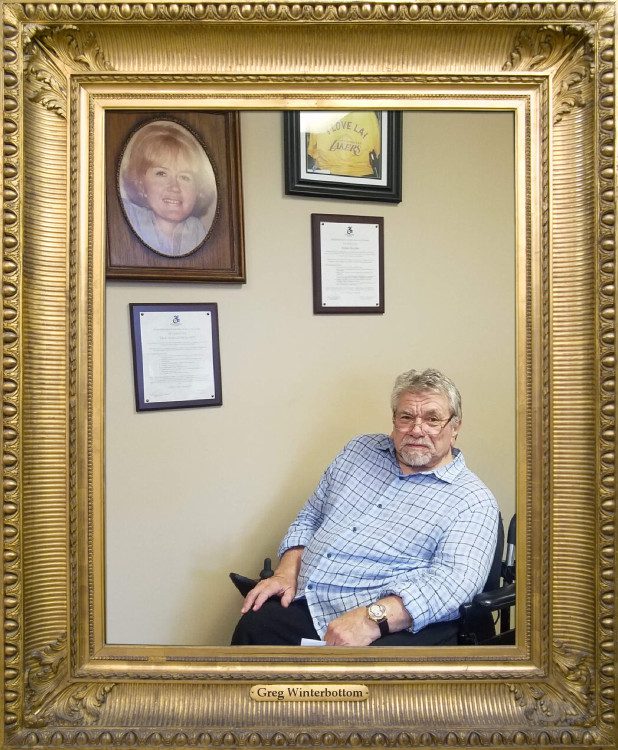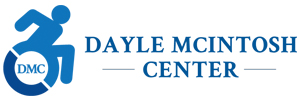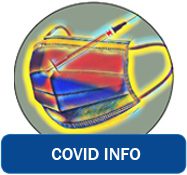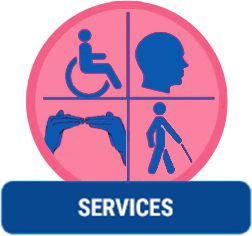Watch how to sign ‘president’ in American Sign Language
GREGORY T. WINTERBOTTOM (1947- 2020) – DMC Original Board President
 On May 7, 1947, Gregory T. Winterbottom was born as a second-generation Pennsylvanian-native. It is said that life is just like transportation – sometimes it can take you to a place you had not planned, but the journey could still be on course with your initial intention.
On May 7, 1947, Gregory T. Winterbottom was born as a second-generation Pennsylvanian-native. It is said that life is just like transportation – sometimes it can take you to a place you had not planned, but the journey could still be on course with your initial intention.
For Winterbottom, this is exactly what happened as his family moved more than 2,700 miles to California, when he was just a one-year old. In childhood, he was aware transportation for his family was an issue growing up with hand-me-down cars that were not in the best of shape, missing brakes, stalling regularly or overheating. As an eight year-old holding cars while they stalled on the hilly residential area of Torrance, he didn’t know it at the time, but ‘transportation issues’ would end up becoming a theme of his life’s trajectory in a completely different context.
Though family cars were stalled most of his childhood, Winterbottom himself continued to be a body in motion that stayed in motion becoming a lettering football player (guard and linebacker) for four years at North Torrance High School in the 1960s.
After enlisting in the U.S. Army at the pivotal age of seventeen, his life trajectory intention was to be all about service. He planned to have transportation as a part of his future as a helicopter mechanic, while also assuming going to war in Vietnam would mean never coming home. Though this isn’t what would happen, the meaning of service and a fight would still be on the agenda when his life was forever-changed by Mother Nature. Winterbottom’s Volkswagen Beetle was blown off the road by a strong wind, causing the vehicle to overturn just near Gila Bend and Yuma on Highway 8 in Arizona.
The car accident landed him in a ditch shattering his spine forever changing his life, causing him to become paralyzed. Transportation in this moment meant being transported by a small plane to a hospital and he would spend his next half-century of his life in a wheelchair.
This accident specifically would end up veering his life off into an unexpected direction in 1966 – but he could not see his future just yet. He had to adapt to his new way of living with a disability, realizing through his own challenges, he had to problem-solve them a piece at a time. It was here an activist was born.
The strange thing about Winterbottom’s story and the specific geographic Arizona location of his life-changing accident was just about a couple hours West from where the future DMC Treasurer Tad Tanaka was incarcerated at the Japanese Internment Gila River Camp with his family a couple decades earlier. Winterbottom’s accident site was also just a couple hours west from where future DMC Vice President Geno Vescovi would graduate with a historic doctorate just four years later as a deaf student.
 Whether it be fate, destiny, or a piece of a grander design, Winterbottom remained unaware, during a particularly challenging life event, that it would eventually become a catalyst for transforming the lives of others. Little did he know that, as a consequence of his own transformative experience, he would later encounter ‘future colleagues’ who had undergone similarly profound life-altering events in the State of Arizona. Their individual journeys converged, shaping each of them in unique ways, propelling them toward a shared mission for the disability community. Bound by their lived experiences and a common thread woven through the fabric of their life’s journey, these three individuals found themselves united in purpose.
Whether it be fate, destiny, or a piece of a grander design, Winterbottom remained unaware, during a particularly challenging life event, that it would eventually become a catalyst for transforming the lives of others. Little did he know that, as a consequence of his own transformative experience, he would later encounter ‘future colleagues’ who had undergone similarly profound life-altering events in the State of Arizona. Their individual journeys converged, shaping each of them in unique ways, propelling them toward a shared mission for the disability community. Bound by their lived experiences and a common thread woven through the fabric of their life’s journey, these three individuals found themselves united in purpose.
But for now, Winterbottom had not met them yet. Nor was he going to settle for status quo along his journey merely accepting ‘how things were.’ Winterbottom believed in fairness. Everyone who knew him – friends, colleagues, and other community leaders will attest to how important parking accessibility was to him in his everyday life, including Brenda Premo, DMC’s founding Executive Director who claims that this was the reason behind much of his activism. He was always fueled to take action by what he did or did not want to experience being a person in a wheelchair. There was no settling.
For feisty Winterbottom, inaccessibility wasn’t going to cut it in the transportation theme of his life. Part of his legacy would eventually lead to him pioneering the Dial-A-Ride program to provide door-to-door transportation for wheelchair users and the elderly, bringing in the first-ever 16(b) 2 vehicles into Orange County.
He created history for the County impacting thousands. As a tough cut-to-the-chase realist who liked to solve problems, transportation was going to mean something much more than the dictionary definition. He would become a hardcore advocate/activist for the disabled to make improved access, independence and mobility a reality through his actions removing all the barriers he could. He had served on the OCTA board since 1993. The authority was created in 1991 under state law, combining the seven separate Orange County agencies that managed transportation planning.
His service work remained consistent, loyal and true to his veteran brothers through his work with the VA rehab services. Winterbottom’s work brought accessibility issues to light through is work on the Orange County Board of Supervisors; to creating bridges between government sectors, working with State Senator Paul Carpenter’s office; to his dedicated work through the Rehabilitation Institute of Southern California (RIO), an organization which originated in 1950 to serve the multi-faceted needs of people with intellectual, neurological, and physical disabilities caused by birth defects, disease, medical conditions or accidents. He did all he humanly could. But again, for Winterbottom, that alone wasn’t going to cut it, where he would take things beyond what was just his own human passion.
Winterbottom often dovetailed his support for Veterans with his work at OCTA:
Being super-human meant taking risks like shining the brightest spotlight on OC government to call them out on having zero accessibility for disabled people to talk/meet with officials to be seen and heard. It is here he created the movement to make all OC government owned real estate accessible with ramps and accommodations. He would also become the solution-oriented individualist, getting blood out of every nickel of limited government funding to make things happen generating unprecedented accessibility and services to reach more people through being a fierce Independent Living advocate. Every single bus with a wheelchair lift, curb cut and ramp is something Winterbottom fought for throughout his entire career.
When he crossed paths with Brenda Premo, those acquainted with both Winterbottom and Premo often remarked on the dynamic, describing their interactions as spirited debates at times. Fate, however, unfolded in a way that brought them together to collaborate on a significant initiative—initiating a survey assessment of Orange County’s disabled community. This endeavor was orchestrated through the joint efforts of the Orange County Human Relations Commission and the Orange County Board of Supervisors. At the time, Winterbottom served as the Executive Assistant to OC Board Supervisor Laurence Schmit and was an active member of the California Association of the Physically Handicapped (CAPH). Despite initial differences, Premo has openly acknowledged that the survey gained even greater momentum due to Winterbottom’s unwavering focus on parking accessibility—a cause that remained close to his heart and one that she continued to passionately champion.
According to one of his friends and colleagues Winterbottom once used his own car as the barrier to block someone in who was unauthorized to park in an accessible parking spot to literally drive a point home to thoughtless able-bodied individuals to ‘pay attention’ to their actions and how they affect the drivers with disabilities in the day-to-day getting about town.
His actions and perspective added to his combination of experience, talent, street-smarts, tenacity, financial savvy, government connections, and grit that would lead him to being the original Board President of the Dayle McIntosh Center in 1977.
His life blood would keep streaming in transportation mode being the longest serving member on the Board of Orange County Transportation Authority (OCTA), then later Vice Chairman to Chairman in 2004, and was the chairman again in 2013. He believed in keeping Measure M’s Metro project funding value in focus so that local jurisdictions can continue to keep important transportation improvements running.
Winterbottom died on June 26, 2020 at his home. His lifelong advocating access for people with disabilities will continue to be a vehicle of change for generations to come.









